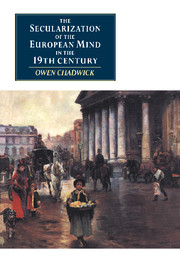2 - On liberalism
Published online by Cambridge University Press: 05 June 2012
Summary
From the moment that European opinion decided for toleration, it decided for an eventual free market in opinion. A toleration of a minority is not the same as equality before the law between opinions. But in the circumstances of European history the one must lead into the other. This happened at different speeds among the states of western Europe. Speed depended upon the division of the state into religious denominations, where a minority could not be repressed, and must first be tolerated and then conceded equality before the law. Russia or Spain never reached equality, or only fitfully attained it, and have not quite attained it yet. But when the country divided on religion, minorities successfully gained the right to differ. Although politicians tried for a time to restrict this right to those who were near to the approved orthodoxy of the state, and refuse it to those far from that orthodoxy, it came to be found that the distinction was untenable. Once concede equality to a distinctive group, you could not confine it to that group. You could not confine it to Protestants; nor, later, to Christians; nor, at last, to believers in God. A free market in some opinions became a free market in all opinions.
The first word we must consider is the word liberal.
- Type
- Chapter
- Information
- Publisher: Cambridge University PressPrint publication year: 1990

